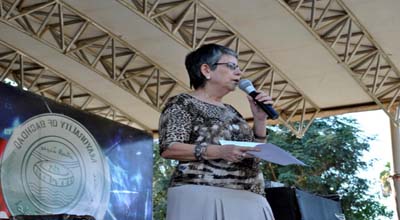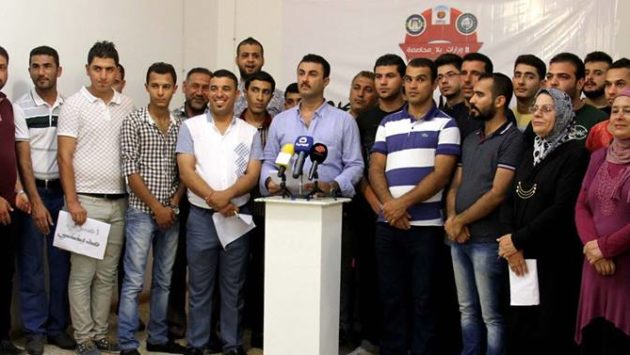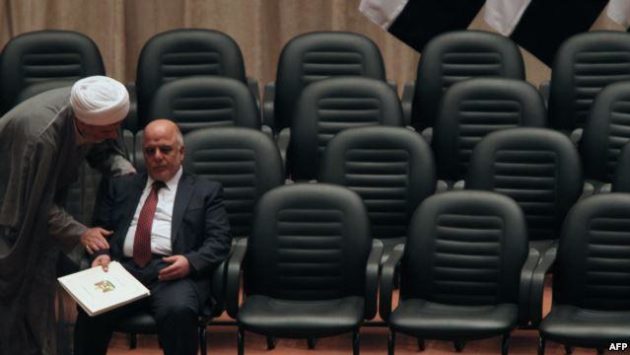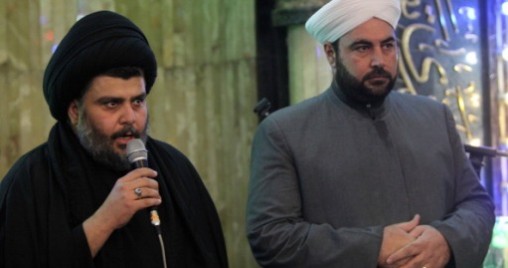Iraqi Civil Society Organizations: “Escalating political conflict among leaders of the major blocks endangers the unity of Iraqi society and reflects negatively on civil peace”
Baghdad : 16 Iraqi civil society organizations sent an open letter to the presidency of Iraq stating that: the escalating conflict among leaders of the major political blocks endangers the unity of Iraqi society and reflects negatively on civil peace. Read below the complete statement:
Your Excellency, Presidency of the Republic
Your Excellency, Presidency of the Council of Ministers
Your Excellency, Presidency of the Council of Representatives
Your Excellency, Presidency of the Higher Judiciary Council
The undersigned civil society organizations send their best greetings and call upon you with a national and fair request, warning from the danger of continuing and escalating political conflict among the leaders of the major blocks of the country, which imperil the unity of Iraqi society and reflect negatively on civil peace in it.
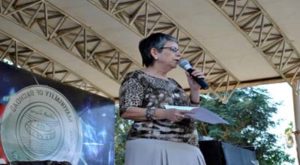
Iraqi Al-Amal Association (IAA) – Baghdad
The frequency of crises reflects a lack of trust among the ruling parties, and repudiation of the principle of partnership, which has strengthened the impression of the public opinion that the supporters of the national democratic project and the establishment of State of law, have turned on this project, and the authority has become the ultimate goal, even if it intersected with the Constitution or agreements concluded among them.
Even programs that led them to the parliament were put on the shelf, as a result of the decision-makers preoccupation with their personal gains, leading to instability and deterioration of services, committing gross violations of human rights, restricting basic liberties by encroaching on civil, cultural and economic rights, and corrupted people are enjoying authoritarian immunities, and grant them with impunity. The political conflict led to the growing phenomenon of militarization and centralization of power, mixing the military with policy, as well as the judiciary is accused of incredibility, and the Council of Representatives is paralyzed, not be able to pass laws that guarantee democracy and social justice.
The tension atmosphere full of sectarian and ethnic speeches and the rising of cacophonic voices calling for the return to pre-2003, describes the suffering of the country with all these intentions of divisions and civil wars fueled by regional interests that provide the factors of retrenchment and intolerance that disrupt dialogue and recognition of the other.
The protests that swept the western regions, and regardless of the breakthroughs that tarnished some legitimate peaceful landmarks, require from authorities to listen and interact with them, respond rapidly to the legitimate demands, to be frank and open with protesters by disclosing the full truth without arrogance and superiority or accuse them with unjust charges, calling them with derogatory descriptions of their dignity and national affiliation.
As the civil society support the legitimate demands through the right to demonstrate and peaceful protest, but it looks suspiciously to the mobilization of counter-demonstrations backed by certain entities due to the interests and gains to be employed in the next election battles.
The representatives of civil society, with many national figures, democrats, liberal and moderate Islamists, think that making Iraqi experience similar to Lebanon experience, always will open the door to crises, sectarian havoc and armed regional conflicts, eventually all this will lead to civil war.
To avoid such a risk and address its challenges, we must fortify the home front, strengthen the unity of Iraqis on the basis of the principle of citizenship, eliminate tension and resolve the worsening crisis. This is achieved by making all the blocs committed to the political process, representatives from civil society, and with active involvement of the religious authority to sit on the negotiating table under the auspices of the parliament that represents the will of the people, to agree on a roadmap to save the country from stifling crises, to ensure its recovery, and to put it on the path of democratic federal and civic State.
The civil society with constitutional options to resolve the current crisis if the concerned parties could not reach positive results. The call for early elections will become a requirement to be achieved only in the presence of legislative guarantees, first and foremost is to amend the election law, issue the political parties law, and conduct the census.
In the current circumstances, there are urgent decisions need to be taken by each involved authority within a specific timeframe:
- Resolve files of prisons, detainees, and prisoners without charges, and compensate them.
- Assign the Human Rights Commission to assess the conditions in prisons and detention centers based on international standards.
- Pay the financial benefits or pensions for employees who are unjustly removed from their positions.
- The Council of Representatives should assume the legislative and monitoring role without deliberate disruption of its sessions.
- Review the laws of transitional justice and the anti- terrorism and discuss the possibility of their amendment.
- Respect the independence of the judiciary, and support it in the implementation of the principle of justice to prosecute senior officials involved in corruption cases or who have links to terrorism and insurgency, and the perpetrators of torture in prisons.
- Implement international recommendations on violations of human rights and respect the freedom of expression, press, publishing, information and peaceful protest.
- Cancel the actions that led to the crisis with the Kurdistan Region, and return to the provisions of the Constitution to address to the provisions of Article (140) of it.
- Keep the army away from the responsibility of internal security, and political and sectarian conflicts.
- Refrain from speeches of mutual intimidating and incitement among the various parties that threaten security and civil peace.
- The three authorities should take full responsibility, by direct and transparent dealing with public demonstrations and sit-ins, on the basis of dialogue and accountability within the framework of the Constitution and the law to solve problems and meet the demands, and completely separate them from political positions, whether agreed or disagreed with them.
With high respect and appreciation
20/01/2013
Signatories:
– Iraqi Council for Peace and Solidarity – Iraqi Al-Amal Association (IAA)
– Masarat Foundation for Cultural and Media Development – Iraqi Woman’s League
– National Association for Defending Human Rights – Tammuz Org for Social Development
– Union of Engineering Professions – Widows Training and Development Center
– Women for Peace Organization – Salam Al Rafidain Organization
– Media Youth Organization – Ashur Cultural Association
– Association of Coalition of Al-Rafidain Women – February Youth Group
– Democratic Future Network – Burj Babel for Media Developmen
Your Excellency, Presidency of the Republic
Your Excellency, Presidency of the Council of Ministers
Your Excellency, Presidency of the Council of Representatives
Your Excellency, Presidency of the Higher Judiciary Council
The undersigned civil society organizations send their best greetings and call upon you with a national and fair request, warning from the danger of continuing and escalating political conflict among the leaders of the major blocks of the country, which imperil the unity of Iraqi society and reflect negatively on civil peace in it.
The frequency of crises reflects a lack of trust among the ruling parties, and repudiation of the principle of partnership, which has strengthened the impression of the public opinion that the supporters of the national democratic project and the establishment of State of law, have turned on this project, and the authority has become the ultimate goal, even if it intersected with the Constitution or agreements concluded among them.
Even programs that led them to the parliament were put on the shelf, as a result of the decision-makers preoccupation with their personal gains, leading to instability and deterioration of services, committing gross violations of human rights, restricting basic liberties by encroaching on civil, cultural and economic rights, and corrupted people are enjoying authoritarian immunities, and grant them with impunity. The political conflict led to the growing phenomenon of militarization and centralization of power, mixing the military with policy, as well as the judiciary is accused of incredibility, and the Council of Representatives is paralyzed, not be able to pass laws that guarantee democracy and social justice.
The tension atmosphere full of sectarian and ethnic speeches and the rising of cacophonic voices calling for the return to pre-2003, describes the suffering of the country with all these intentions of divisions and civil wars fueled by regional interests that provide the factors of retrenchment and intolerance that disrupt dialogue and recognition of the other.
The protests that swept the western regions, and regardless of the breakthroughs that tarnished some legitimate peaceful landmarks, require from authorities to listen and interact with them, respond rapidly to the legitimate demands, to be frank and open with protesters by disclosing the full truth without arrogance and superiority or accuse them with unjust charges, calling them with derogatory descriptions of their dignity and national affiliation.
As the civil society support the legitimate demands through the right to demonstrate and peaceful protest, but it looks suspiciously to the mobilization of counter-demonstrations backed by certain entities due to the interests and gains to be employed in the next election battles.
The representatives of civil society, with many national figures, democrats, liberal and moderate Islamists, think that making Iraqi experience similar to Lebanon experience, always will open the door to crises, sectarian havoc and armed regional conflicts, eventually all this will lead to civil war.
To avoid such a risk and address its challenges, we must fortify the home front, strengthen the unity of Iraqis on the basis of the principle of citizenship, eliminate tension and resolve the worsening crisis. This is achieved by making all the blocs committed to the political process, representatives from civil society, and with active involvement of the religious authority to sit on the negotiating table under the auspices of the parliament that represents the will of the people, to agree on a roadmap to save the country from stifling crises, to ensure its recovery, and to put it on the path of democratic federal and civic State.
The civil society with constitutional options to resolve the current crisis if the concerned parties could not reach positive results. The call for early elections will become a requirement to be achieved only in the presence of legislative guarantees, first and foremost is to amend the election law, issue the political parties law, and conduct the census.
In the current circumstances, there are urgent decisions need to be taken by each involved authority within a specific timeframe:
- Resolve files of prisons, detainees, and prisoners without charges, and compensate them.
- Assign the Human Rights Commission to assess the conditions in prisons and detention centers based on international standards.
- Pay the financial benefits or pensions for employees who are unjustly removed from their positions.
- The Council of Representatives should assume the legislative and monitoring role without deliberate disruption of its sessions.
- Review the laws of transitional justice and the anti- terrorism and discuss the possibility of their amendment.
- Respect the independence of the judiciary, and support it in the implementation of the principle of justice to prosecute senior officials involved in corruption cases or who have links to terrorism and insurgency, and the perpetrators of torture in prisons.
- Implement international recommendations on violations of human rights and respect the freedom of expression, press, publishing, information and peaceful protest.
- Cancel the actions that led to the crisis with the Kurdistan Region, and return to the provisions of the Constitution to address to the provisions of Article (140) of it.
- Keep the army away from the responsibility of internal security, and political and sectarian conflicts.
- Refrain from speeches of mutual intimidating and incitement among the various parties that threaten security and civil peace.
- The three authorities should take full responsibility, by direct and transparent dealing with public demonstrations and sit-ins, on the basis of dialogue and accountability within the framework of the Constitution and the law to solve problems and meet the demands, and completely separate them from political positions, whether agreed or disagreed with them.
With high respect and appreciation
20/01/2013
Signatories:
– Iraqi Council for Peace and Solidarity – Iraqi Al-Amal Association (IAA)
– Masarat Foundation for Cultural and Media Development – Iraqi Woman’s League
– National Association for Defending Human Rights – Tammuz Org for Social Development
– Union of Engineering Professions – Widows Training and Development Center
– Women for Peace Organization – Salam Al Rafidain Organization
– Media Youth Organization – Ashur Cultural Association
– Association of Coalition of Al-Rafidain Women – February Youth Group
– Democratic Future Network – Burj Babel for Media Developmen

